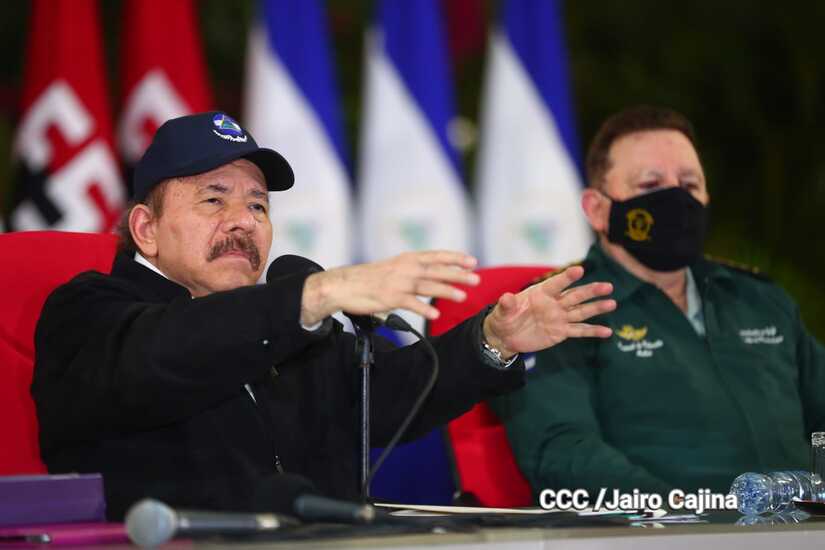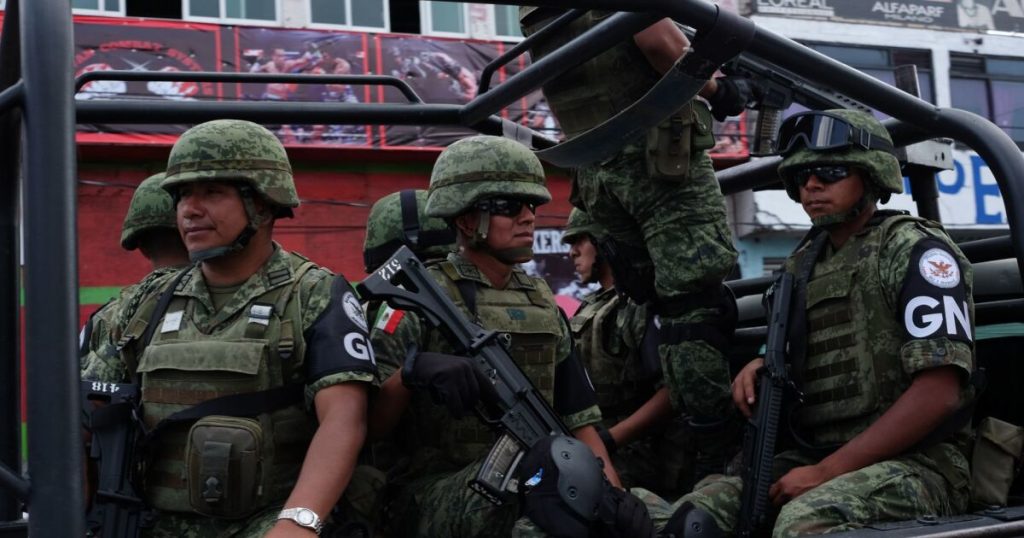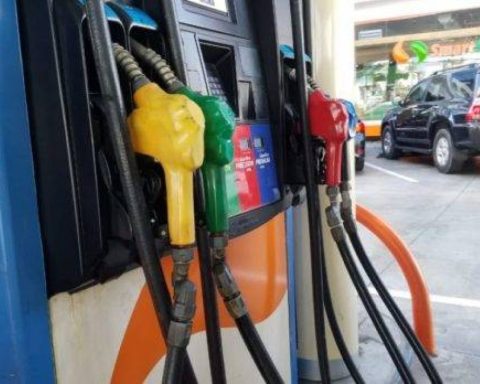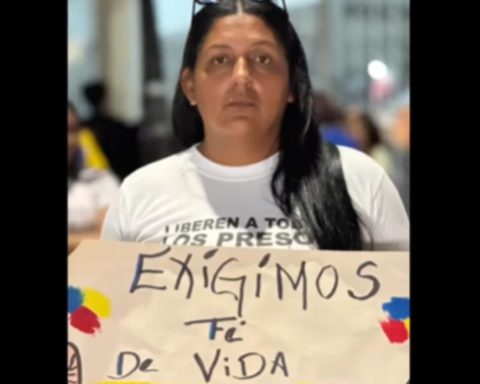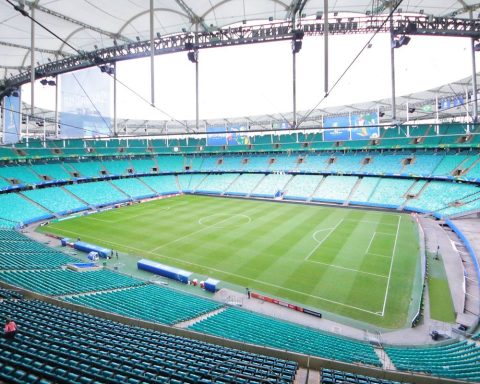Daniel Ortega is heading towards his fourth term in government in the face of a scenario of economic slowdown, risks of a profound deterioration to public security due to his dependence on paramilitarism to maintain his operations of political repression and growing international isolation, aggravated by the process of Nicaragua’s exit from the Organization of American States (OAS), summarizes a new report from the Intelligence Unit of The Economist magazine (EIU),
The complicated political, economic and social environment for Nicaragua is a consequence of the November 7 voting, in which Ortega and his wife Rosario Murillo were reelected without political competition or transparency, under the shadow of repression and the de facto police state imposed by Ortega.
This January 10, 2022, Ortega assumes his fourth consecutive term, with which he would add twenty continuous years in power, in a new period in which the Sandinista leader seeks to consolidate his dictatorship and prepare the family dynastic succession.
Exit from the OAS is a “feint” by Ortega, estimates the EIU
The EIU report also warns that the exit process initiated by the OAS regime could have a boomerang effect for Ortega, and aggravate their situation of international isolation, which in turn deteriorated after the November 7 vote.
“The OAS issued a resolution stating that the elections lacked democratic legitimacy. In response, Nicaragua began a two-year process to leave the OAS. We believe that the measure is primarily a display of risky policy on the part of the Ortega regime, but the tactic is risky and could leave the regime even more isolated, ”the analysis notes..
“In our opinion, the initiative is a feint (gesture or action with the intention of deceiving) that Nicaragua will not follow in the last resort. We believe that the measure is probably a ploy to buy time against a forced expulsion of the OAS, given that some member states may be reluctant to remove a country that is supposedly already leaving. However, even if successful, this high-risk tactic would only delay a exit from the OAS ”, adds the report.
The EIU believes that Ortega is betting that the ideological makeup of the OAS will change during the 2022-2026 period, or that international attention on Nicaragua will fade over time. However, please note that these scenarios are not guaranteed.
“The departure of Nicaragua from the OAS -whether voluntary or forced- would close the country’s access to financing the Inter-American Development Bank , with possible indirect effects for the financing of other multilateral organizations such as the IMF and the World Bank. Consequently, Nicaragua will increasingly depend on the Central American Bank for Integration Economics (CABEI) for its external financing, which is outside the scope of US sanctions, “he says.
This December 13, CABEI, with the votes of the representatives of Honduras, El Salvador, Argentina, Mexico, Korea and Nicaragua itself, approved a new disbursement for the Ortega regime for $ 382.6 million, for the execution of the tenth ‘Highway Expansion and Improvement Program’.
This loan —that totals almost 13.6 billion córdobas— would be destined to build and improve 185.2 kilometers of highways in nine municipalities in the Pacific and two in the South Caribbean, beginning with the “improvement” of 119.5 kilometers of roads in Rivas, Carazo and Managua. , to build La Costanera.
““ We believe that CABEI’s financing is unlikely to be threatened in the short term. Most of the voting power in CABEI is concentrated in the five founding members: Costa Rica, El Salvador, Guatemala, Honduras and Nicaragua. With the exception of Costa Rica, all of these countries lack bona fides (good faith) and they will be wary of setting a precedent with Nicaragua that could one day be used against them, ”warns the EIU.
Warns taxes and regulations to “undermine” opponents
The EIU analysis indicates that economic growth will decelerate markedly between 2022 and 2026, due to a lack of credit to the private sector, a fearful business environment in its investments due to the repressive climate and a moderation in the international demand for Nicaraguan products.
Nicaragua experienced a remarkable economic recovery in 2021, driven in large part by extremely favorable external conditions, which helped Nicaraguan finances reach the levels that existed before the impact of the covid-19 pandemic.
“The Daniel Ortega regime received important multilateral funds for assistance against the pandemic and reconstruction after the hurricanes (Eta and Iota) in 2021. However, the sources of financing will be reduced in the medium term, increasing the pressure on fiscal accounts and international reserves ”, cites the report of the The Economist Intelligence Unit.
The EIU maintains that the regime’s “absolute control” over state institutions and security forces will allow it to continue developing its authoritarian dynastic regime.
“There will be a risk of state interventionism, mainly in terms of taxes and regulations, mainly with the aim of undermining opponents of the regime. However, in general terms, the Government will maintain an orthodox policy framework, with the private sector driving modest productivity gains in the period 2022-2026 ”, he adds.
The deterioration of the public security climate in Nicaragua
Another warning from the EIU is the increasing deterioration of public security due to the use of paramilitarism to maintain Ortega control in the face of possible protests. This has led the Sandinista Front to have to pay a high political cost, which has implied a loss of party sympathy.
“Although the systematic repression allowed an uneventful control of the electoral process, the FSLN paid a price for its victory in the form of a serious loss of political support, which will make it difficult to continue ruling in the next term. We hope that the Ortega regime will increase its dependence on paramilitary groups to control social and civil unrest. However, such arrangements increase lawlessness and risks to public safety. Independent reports already indicate an increase in violent crime, illicit drug trafficking and even human trafficking, ”the EIU cites.
A CID Gallup poll, sponsored by CONFIDENTIAL and released this week, projects a partisan sympathy toward the Sandinista Front of 14%, and reveals Daniel Ortega and Rosario Murillo as the least politically sympathetic characters in the country.
Sanctions will continue, but will not seek to derail the economy
The same report, the EIU explains that the sanctions of the international community towards the Ortega regime will increase. It recognizes that these are not intended to have a scope that implies a complete derailment of the Nicaraguan economy. However, this could change.
“Recurring political conflicts and low confidence in the rule of law will dampen growth prospects, despite lucrative opportunities in sectors such as mining, power and manufacturing. Nicaragua will continue to be one of the poorest countries in the region. The United States and its allies will increase pressure on the Nicaraguan regime to undertake pro-democracy reforms. Although the EIU believes that Western powers will refrain from imposing destabilizing sanctions on the entire economy, there are risks to this assumption, “the analysis warns..
Affecting CAFTA wouldn’t be on the radar, for now
On the impact of the sanctions of the international community and other pressure measures against the regime, the EIU points out that since these actions have not succeeded in making Ortega members open spaces for a political negotiation to unblock the crisis that the country is experiencing, it is It is possible that these will increase in 2022, mainly those generated from the United States.
However, although the called the Reborn Law establishes a review of Nicaragua’s participation in the Free Trade Agreement with the United States (DR-CAFTA), the EIU estimates that given the consequences of the measure, it will not be implemented, at least in the short term.
“Our baseline forecast assumes that the US will not advance efforts to exclude Nicaragua from DR-CAFTA. Not only because such a measure would be legally complicated, it would also impose serious economic difficulties on Nicaraguans and could have significant negative side effects for the region, ”the report argues.
